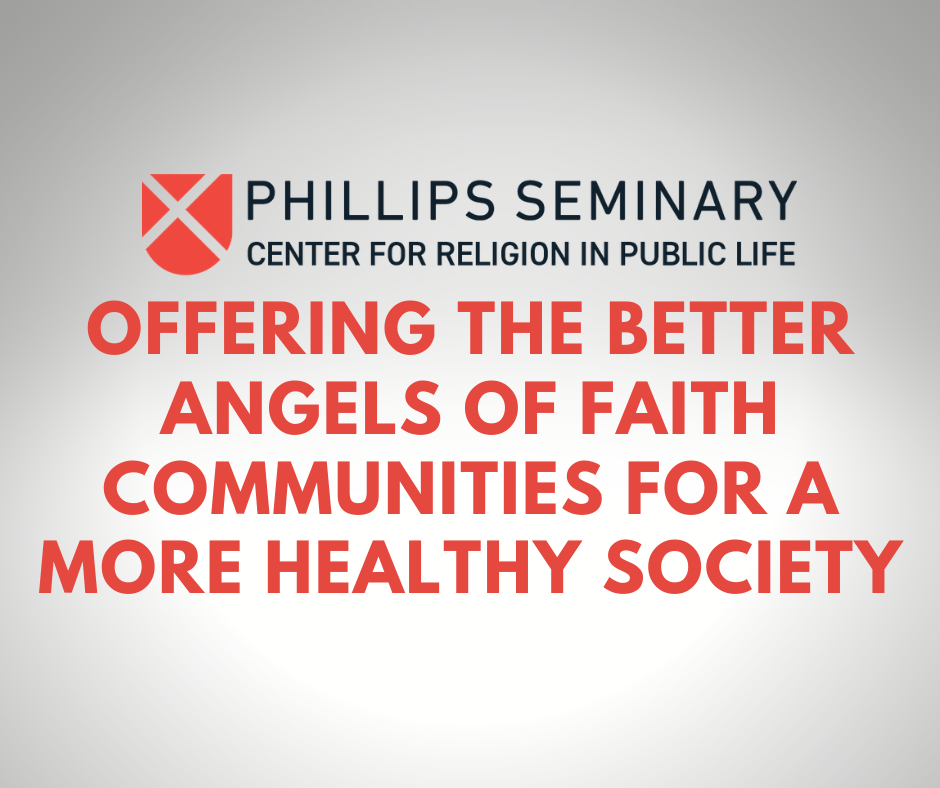12 More Ways Faith Communities Could Foster a More Healthy Society
 This is the second of two blogs to address the question: What do people of faith know that could make for a more healthy society, if we were intentional about making practical and public what we know?
This is the second of two blogs to address the question: What do people of faith know that could make for a more healthy society, if we were intentional about making practical and public what we know?
A few weeks ago, I taught a free, online course exploring this topic. (If you’d like to watch any of the five lectures and four interviews that comprised the content of the course, you can do so here.) In the final class session, I offered 24 proposals. Each proposal imagines what people of faith already know, or have known and could know again, that could help regenerate the soil of culture necessary for a healthy society.
Last week, the blog addressed 12 proposals, and this week I offer the second half.
Please, think along with me. Other practical conclusions could be drawn from the same theological claims.
People of faith know:
- Healthy, functional human community requires a moral code to develop trust, reciprocity, mutuality, relative equality, cooperation. The Golden Rule, as expressed in various religious traditions, is one such moral claim. A healthy society gleans from the nation’s religious, moral, and spiritual communities to cobble a sufficient moral order.
- The value of tribes, and the danger of tribalism. A healthy society values families and voluntary associations, and guards against any such group trying to become the minority that dominates the majority.
- Care for the poor and vulnerable is a chief, or the chief, plumb line for justice and morality in society. A healthy society will tolerate only a certain level of economic inequality.
- How to build trust and brave spaces for dangerous conversations. A fitting democracy requires a robust swirl of conversations and arguments.
- Everyone has a relationship with money. The love of money, and not money itself, is the root of all evil. A healthy society will not allow civic life to be driven by monied interests.
- The importance of the question, “How much is enough?” Living simply is more holy than accumulating or leaving a heavy footprint. A healthy society dances with an ever-improving, but not an ever-expanding, economy. Consumption is not a sustainable strategy, or an adequate substitute, for the pursuit of happiness.
- The need for, and practices and rituals of, reflection, confession, repentance, penance, and forgiveness. A healthy society will foster like practices and rituals in public life.
- The importance of eating together. A healthy society fosters practices where strangers can become friends and neighbors.
- The toxicity of lies, including self-deception, and the healing value of truth. A healthy society is injured by lies and is healed by the pursuit, acceptance, and consequences of truth.
- How to pursue wisdom. A healthy society constantly seeks better living, better decisions, knowing and learning from history—not necessarily living bigger.
- Work that makes, repairs, and heals is sacred. A healthy society seeks to create and maintain the connections between human dignity, good work, a truly living wage, and doing good.
- Work is important. So is rest, recovery, restoration. Not only kings and queens should have leisure and enjoy the fruits of the earth.
No one tradition or community embodies all of these “knowledges.” Some communities would be hard-pressed to claim ever to have known how to hold brave conversations or to cultivate a moral understanding of money with their adherents. But what if the faith community in which you participate got really good at generating and sharing even a few of these? How might your faith community become a more effective leaven for love, compassion, and justice within your neighborhood, town, city, and state?
Imagine.
Dr. Gary Peluso-Verdend is president emeritus at Phillips Theological Seminary and is the executive director of the seminary’s Center for Religion in Public Life. The opinions expressed in this blog are those of the author. Learn more about the Center’s work here and about Gary here.


Comments are closed.